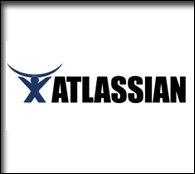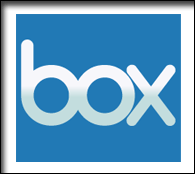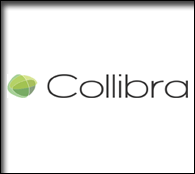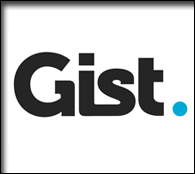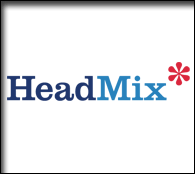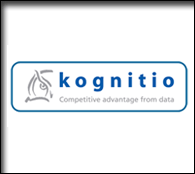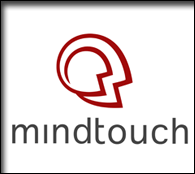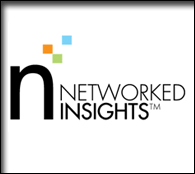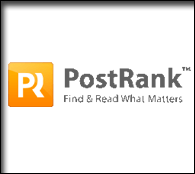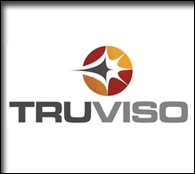speakers
An Agenda First Draft - kinda
by Eric Norlin on Jun.22, 2009, under conference topics, speakers
We’ve posted the “first draft” of the agenda, although it is actually more like an alpha because all that’s really there is format. Don’t get me wrong, we have stuff to put there, but I’ve just posted format at this point (mostly for feedback). As you take a look, some terms to keep in mind:
1. “Fragments”: basically, shorter keynotes. I’m experimenting with this a LOT this year - the mix of short vs. long time frames. Every time I do rapid-fire short times, people attending LOVE it. The speakers always want more time, but they usually don’t realize how being forced to be concise improves what they say. That said, there are way more “fragments” on this alpha agenda than we’ll actually end up having. Like I said, I’m playing around.
2. “Problem-set”: This is an idea I’ve been toying with since Gluecon. What I want to do is have 4 CEOs of startups get up on stage and describe a problem (technical, business, strategic) that they’ve encountered since starting their company that they have no idea how to solve. In other words, it can’t be the problem their startup is solving, it has to be something they’ve discovered since founding their startups. The idea is to crowd-source this discussion a bit and find a creative way to weave a “solution set” session back into day 2 of the agenda (currently not there).
3. “Open Space”: This is some unconference time within the conference. We experimented with this in year 1 and it really worked. Fortunately, we had Jerry Michalski running it in year 1. Unfortunately, he couldn’t make it in year 2 (and we suffered for it). Doubly fortunately, Jerry’s back this year.
4. “Afternoon Topic Explorations”: What I’m trying to do here is A) present 4 distinct “points of view” (POV) around a broad topic and then have a “discussion catalyst” (moderator) lead a group discussion for 20 minutes or so. For instance, “messaging metaphors” might have a POV around why twitter will replace email, a POV around why email enhancers like Gist and Xobni are the wave of the future, a third POV on how Google’s WAVE will change everything, and a fourth POV on the effect that social media is having on the metaphors of messaging. Four, ten minute POVs, and then we have a group discussion led by someone smart in this area.
Broadly speaking, I’m trying to structure in a physical experience of “information overload” or fragmented ideas followed by “defragging sessions” - or longer discussion times that start tying threads together. I’m not sure exactly how this will turn out, but that’s kinda half the fun of between now and then.
There are some things I can already begin to highlight:
1. Andy Kessler is confirmed for a keynote.
2. Stowe Boyd is confirmed for a keynote to talk about “Deep Structure Of The Real Time Stream: Semiotics And Microsyntax” (sidenote: after I looked up what “semiotics” meant, I decided he needs more time.) ![]()
3. I’m putting together a VC panel on day 2 to address the funding environment — specifically, the broad trend we’re seeing around investment in social media leverage startups and social media analytics services. It looks like Brad Feld, Roger Ehrenberg, Howard Lindzon and Fred Wilson are already on board for that.
4. We’ve got a loose session around “Discovery vs. Search” where Robert Scoble and Buzz Bruggeman will be co-instigators (we’ll look to add Bing, FriendFeed, Google, etc).
All in all, not a bad alpha agenda start — with much work to do. If you’re interested in being involved, email me (enorlin AT mac.com).
Lastly, I’m running a special registration discount for this week and this week only (in honor of another conference taking place up in Boston). Use the code “e2″ and drop our price down to the insanely low $895. But hurry, it expires Friday.
Friday notes
by Eric Norlin on Jun.19, 2009, under general, speakers, sponsors
I’ve got a couple of notes on a Friday morning, as we start the very early planning for Defrag:
1. I’m overjoyed to announce that Andy Kessler has agreed to be our opening keynote. Andy is, of course, a noted author and frequent contributor to the Op-Ed pages of publications like the Wall Street Journal. You will not want to miss the perspective Andy will bring to the Defrag discussion.
2. You might look at the Defrag homepage and wonder “what’s with that widget?” You know, the one that says “Discover who in your social network is a Defrag attendee.” I’m very happy to be working with EventVue as their alpha customer (alpha alpha - so be kind) around their new “Discover” service. The value proposition of Discover is simple — use it to find out who in your network is a defrag attendee, sign up to be notified when people in your network register for the conference (if you’d like), and receive special discount codes when you use the service. The premise, of course, being that one of the main factors in people’s decision making process around attending is knowing who *else* in their network is coming. We’re just now working on rolling Discover out (and I’m working with the EventVue guys around feedback, design changes, etc) - but I’d love to hear what you think.
3. Lastly, if you’re a sponsor of the recent Semantic Technology Conference or the upcoming Enterprise 2.0 conference, you’re eligible for a discount to sponsor Defrag. Defrag’s obviously a bit of a different animal - since we live at the intersections of a bunch of topics (including those two), and I really hope you’ll give us a look. Email me (enorlin AT mac.com) to find out more.
Beginning to eye Defrag
by Eric Norlin on Jun.10, 2009, under conference topics, speakers, sponsors
Believe it or not, we’re beginning to work on Defrag 2009. Please check out what past attendee’s thought of Defrag, and then consider attending this year’s iteration. Here’s what we’ve got cookin’ so far:
1. This year’s advisors include -
Roger Ehrenberg
Paul Kedrosky
Chris Shipley
Jerry Michalski
2. This year’s sponsors already include folks like -
Collibra
Gist
Atlassian
MindTouch
box
Truviso
HeadMix
Networked Insights
Freepository
Gnip
Chatterbox
PostRank
NewsGator
3. Early “discussion catalysts” (I’ve decided to call them that, since that’s more accurate than “speaker”) already include folks like-
Kim Cameron
Fred Wilson
Robert Scoble
Buzz Bruggeman
Deborah Schultz
Stowe Boyd
Louis Gray
4. I’m already working on some different “format things” for this year’s Defrag. For one thing, I want to run a “problem-set” session — where we ask entrepreneurs to present a problem they’ve discovered (in 5-10mins) SINCE starting their company. Secondly, I want to run “theme focused” afternoons — where we gather 5-8 differing angles on topic themes and then have discussions following. Needless to say, we’re looking to A) pick up the pace of presentations and B) move more directly toward discussion.
Sound interesting? I hope so. And, believe me, we’re really JUST getting started. If you’re interested in joining our awesome sponsors, shoot me an email (enorlin AT mac.com).
A defrag speaker featured in the NYT
by Eric Norlin on Sep.04, 2008, under conference topics, speakers
One of our Defrag speakers, Rich Hoeg, has been featured in a New York Times article. Rich is the Manager of Web Collaboration and Knowledge Sharing at Honeywell, and he’s been doing some truly “out there” stuff around tagging, folksonomies and corporate search. Apparently, though, that’s not all he does, as this article is about data visualization tutorials that Rich has set up. I’m hoping that Rich will share some of that with us as well.
Defrag’s bringing together people that are way beyond your normal “conference circuit” speakers. I hope you’ll join us.
Like a double-stuffed Oreo
by Eric Norlin on May.06, 2008, under conference topics, speakers, sponsors
So much has been happening around Defrag as of late that, while I’ve been letting it all flow out through Twitter, I’ve neglected to update this space. So, a brain dump.
You should (by now) know that our advisory board includes:
Esther Dyson- Founder of PC Forum, and internet wise-person for as long as I’ve known the internet
Chris Shipley - The woman behind DEMO, and one of the smartest startup analysts I know
Paul Kedrosky - VC, TV-star (cnbc), and *the* smartest person I know about technology and all things financial services
Clay Shirky - Probably the most consistently inspiring internet “guru” around, and author of “Here Comes Everybody”
JP Rangaswami - Unquestionably, one of the leading “CIO-types” on the planet, and all around eclectic thinker
And, I’m extremely pleased to have all of them on board.
Recent sponsors that we’ve added include:
Connectbeam - enterprise social bookmarking and social networking
coComment - folks working on the conversation in the comments
Jive Software - enterprise collaboration and community software
blist - democratizing the database
HiveLive - Online community and social networking folks
MindTouch - Open Source wiki and content management
Fuser - tools for simplifying online activities
Talis - Semantic web application platform
….and several others that I can’t speak about yet.
We’ve also confirmed speakers like:
Professor William Duggan - Strategic Intuition and Defrag
Kevin Merritt - The Democratization of Data
Perry Mizota - Knowledge Networking and Ambient Intimacy
Sam Lawrence - On collaboration, analysts, going big and controversy
Charlene Li - Harnessing the Implicit Value of the Social Graph
Marty Betz - Observing the invisible through aggregating information tomography
Paul Miller - On Semantic topics and users connecting the dots
Brian Oberkirch - Under Sousveillance: Personal Informatics & Techniques of the Self
Lane Becker - Being like the internet
Puneet Gupta (and a great customer) - On rolling out a massive social bookmarking project
…and many others.
And, lastly, we KNOW we’re going to cover topics like:
Finding serendipitous information through context
Users connecting the dots - making the unstructured structured
Getting to relevancy through identity
Visualizing Data
Next-level discovery (what the hell does that mean?)
…and you can still tell us what we should add to this.
All of that, and its only May (so it only gets better from here). Needless to say, I’m psyched. And I hope you’ll join us.
Weinberger speaks
by Eric Norlin on Dec.02, 2007, under speakers
If you weren’t at Defrag, you may have heard about David’s wonderful conference-opening talk (it actually brought one audience member to tears). If you were there, you’ll probably want to absorb it one more time (I’m doing so with Sunday morning coffee). In either event, you can find it in the fifth “entry” on this page. Enjoy.
[sidenote: see the new defrag blog design? just one tiny piece of our about-to-launch new website for 2008. Look for that very shortly.]
Defragging Identity
by Eric Norlin on Oct.22, 2007, under general, speakers
Way back in 2005, Dick Hardt delivered a presentation at OScon that really helped “popularize” identity, and served as a catalyst for a bunch of the subsequent work thtat went on around user-centric identity and OpenID.
If you haven’t seen Dick’s presentation, you owe it to yourself to go and check it out.
A few months ago, Dick approached me and said that he was working up a whole bunch of new material that he’d like to unveil at Defrag. I was, of course, intrigued. Dick’s presentation style has gained him a lot of notoriety. I’m looking forward to hearing Dick’s new thoughts on Defrag and Identity. You should join us.
Alex at Defrag
by Eric Norlin on Oct.11, 2007, under general, speakers
You can always tell when you round the corner and you’re four weeks out from a conference. Two things happen: People you’ve never communicated with before begin asking for discounts (not a bad thing at all), and you begin to get the question about what you’re “really looking forward to” in the conference’s content.
The first question is easy to answer — use the code, “defrag3″ to get $300 off — but hurry, it is expiring at the end of this week.
The second is really a bit more difficult. I can rattle off a ton of sessions that are going to entertain, inform and offer fodder for thought, but if there is one session that I think is going to force me to stop typing, look up from my computer and *really* listen, it will be Alex Iskold’s session on “structured attention.” Why do I think that? For the same reasons that Brad Feld and Fred Wilson keep bringing up: Alex is just damn smart and REALLY good at condensing his thoughts down into understandable chunks.
Evidence: Alex’s latest on Read/WriteWeb. Alex writes about the “structured web” in general, but manages to capture ALL of the important technical underpinnings of what we’re working on at Defrag. And, he brings up probably the three central pieces to Defrag’s conversation: semantics, attention (implicit behavioral stuff), and personalization.
You should, of course, join in this discussion.
My bet is that the first Defrag will see 7-10 people/companies emerge as the folks that will be “definitional” in the Defrag space. Alex has already made that list.
PS: there’s talk of a tuesday night dinner with Alex and David Mandell from me.dium….heck, I’m hearing talk of all kinds of cool meetings in and around Defrag. We’ll be rolling out several social networking tools to help accomodate that — but please be in touch with me if you have questions about getting included, etc.
PPS: Don’t delay on that registration, discounts are expiring Friday.
Community-driven, implicit gadgets
by Eric Norlin on Oct.01, 2007, under general, speakers
Brad’s been talking about what he means by “the implicit web” — saying that he wants his computing infrastructure to “to get smarter about what I care about, who I trust, what information I want more of (or less of), and to help me discover new relevant stuff – automagically.”
So, how deep does that “infrastructure” go?
This morning my friend Phil Windley (who is coming to Defrag - are you?) is blogging about the recent dustup with the iPhone, and what that means in terms of open computing platforms.
All of this made me think of a session I just put on the agenda — the one about “community-driven gadgets” and Bug Labs. The reason that I wanted Bug Labs there is that we often tend to limit our view of what the “implicit web” can mean to simply software. But that shouldn’t be the end of things. “Open platforms,” especially ones that are seeking to utilize a community to drive their implementation should include hardware as well.
I’m looking forward to enlarging the “community driven” discussion past widgets, modules and all things “collective” into the realm of where technology and physicality meet (hardware).
[ps: Did I mention that we're now just over one month out from the show? Oh yes, you should register and get your hotel room booked while there's still time and *room*.]
Two great additions to the agenda
by Eric Norlin on Sep.22, 2007, under speakers
I’m happy to report this morning that we’ve added two folks to the agenda that should make things even *more* interesting:
1. With DEMO coming up next week, it only seems appropriate to announce that Chris Shipley will be joining us at Defrag.
2. We’ve also added Bug Labs to the agenda — specifically to speak to the idea of “community-driven” gadgets.
Ooooh and we’re working on so much more — can ya smell what the Defrag has cookin’? ![]()
